<> Castalius rosimon (Fabricius, 1775) <>
the Common Pierrot ผีเสื้อหนอนพุทราธรรมดา
Click on any photo to see all photos full size in Lightbox
Additions and corrections to the information provided on this page is always welcome. Please use the Contact form.
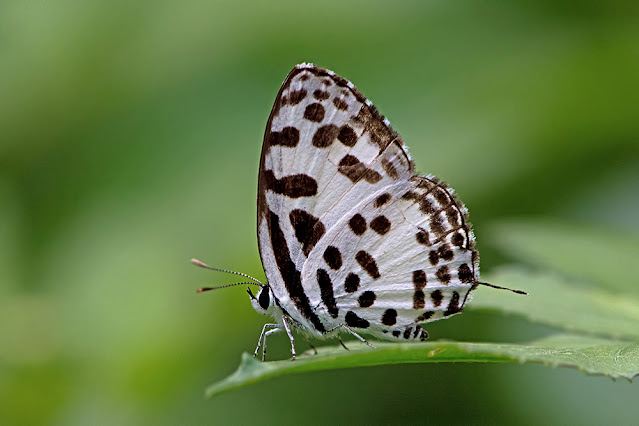
Photo taken at Doi Suthep-Pui National Park, Chiang Mai, Thailand 460m a.s.l.

Castalius rosimon is common and widespread across most of the SW Asia region. Both sexes are similar in appearance, the only difference being that the black border around the edges of the upper wings is broader in the female. However, it is the underwings that are usually seen and these are more or less identical regardless of sex. In overcast or hazy weather they will sometimes bask with their wings held half open but only very rarely fully open. They have a very rapid and acrobatic flight, dashing back and forth from flowers to the tops of bushes and back again with amazing speed. It can take quite a while before the decide where they will eventually settle.
The species is multivoltine, and with a relatively short life cycle there are numerous generations every year. The adult female lays her eggs singly on young leaves of the host plant. The larvae feed exclusively on hosts in the Rhamnaceae family of plants. Males only occasionally mud puddle at stream edges and females are recorded as feeding on animal dung.
Synonyms and previously used names: Papilio rosimon, Papilio maimon, Papilio coridon, Papilio clyton, Castalius naxus, Castalius approximatus, Castalius chota
Taxonomy: Animalia - Arthropoda - Insecta - Lepidoptera - Lycaenidae - Polyommatinae - Castalius - rosimon
Regional subspecies: Castalius rosimon rosimon (NE India, Myanmar, Thailand, Laos, Cambodia, Vietnam, S.China, W.Malaysia, Singapore, Indonesia)
Regional Distribution: Nepal, Bhutan, India, Bangladesh, Myanmar, Thailand, Laos, Cambodia, Vietnam, China, Malaysia, Singapore, Indonesia, Philippines
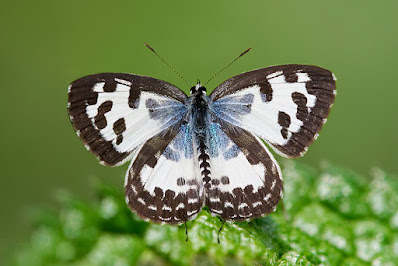 |
Doi Suthep-Pui National Park, Chiang Mai, Thailand 460m a.s.l. |
Habitat: Castalius rosimon is found in open areas within secondary and montane forests, forest edges, grassland, scrubland, and sometimes in urban areas. Usually seen at low to moderate elevations and has been recorded up to ~1000m a.s.l.
Flight time: most of the year depending on location Wingspan: 25-32mm
Life History: egg 3-4 days instar 1 3 days instar 2 3 days instar 3 3 days instar 4 3-4 days instar 5 n/a pupa 5-6 days Total egg to adult 21-25 days. All times are approximate.
Larval Hosts: Gouania microcarpa, Paliurus ramosissimus, Ziziphus jujuba, Ziziphus mauritiana, Ziziphus nummularia, Ziziphus oenopolia, Ziziphus rugosa, Ziziphus xylopyrus (Rhamnaceae).
Actual host plant used depends upon location and availabilty of plant species.
Adult Food Sources: Nectar - Bidens pilosa, Chromolaena odorata, Emilia sonchifolia, Erigeron karvinskianus, Galinsoga parviflora, , Mikania micrantha, Parthenium hysterophorus, Sphagneticola calendulacea, Taraxacum javanicum, Tridax procumbens (Asteraceae), Sida acuta (Malvaceae), Ziziphus jujuba, Ziziphus mauritiana, Ziziphus oenopolia (Rhamnaceae), Cassia fistula, Hylodesmum repandum, Trifolium repens (Fabaceae), Gentiana quadrifaria (Gentianaceae), Oenothera rosea (Onagraceae), Commeliana sp., (Commelinaceae), Prinsepia utilis (Rosaceae), Oxalis latifolia (Oxalidaceae), Jasminum mesnyi (Oleaceae), Oplismenus undulatifolius, Poa annua (Poaceae), Antigonon leptopus (Polygonaceae), Cleome viscosa (Cleomaceae), Asystasia gangetica, Rostellularia procumbens (Acanthaceae), Spermacoce hispida (Rubiaceae), Lantana camara (Verbenaceae). Other - mud puddling, animal dung, carrion
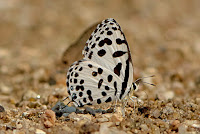 |
| Doi Suthep-Pui National Park, Chiang Mai, Thailand |
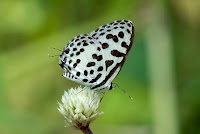 |
| Doi Suthep-Pui National Park, Chiang Mai, Thailand ♂ |
 |
| Doi Suthep-Pui National Park, Chiang Mai, Thailand ♂ |
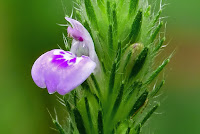 |
| Rostellularia procumbens, a nectar source |
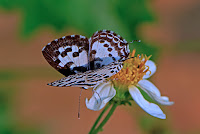 |
| Doi Suthep-Pui National Park, Chiang Mai, Thailand |
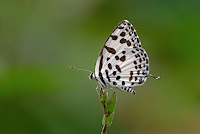 |
| Doi Suthep-Pui National Park, Chiang Mai, Thailand |
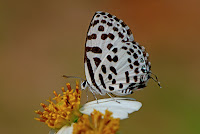 |
| Doi Suthep-Pui National Park, Chiang Mai, Thailand |
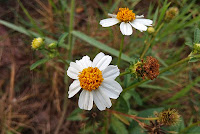 |
| Bidens pilosa, another nectar source |
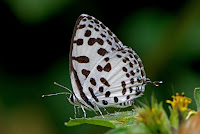 |
| Doi Suthep-Pui National Park, Chiang Mai, Thailand |
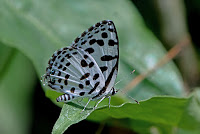 |
| Doi Suthep-Pui National Park, Chiang Mai, Thailand |
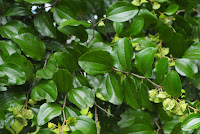 |
| Gouania microcarpa, a larval host |
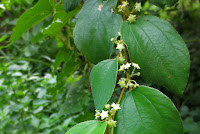 |
| Ziziphus mauritiana, another larval host |
Links to other pages in this series for species in the same subfamily
